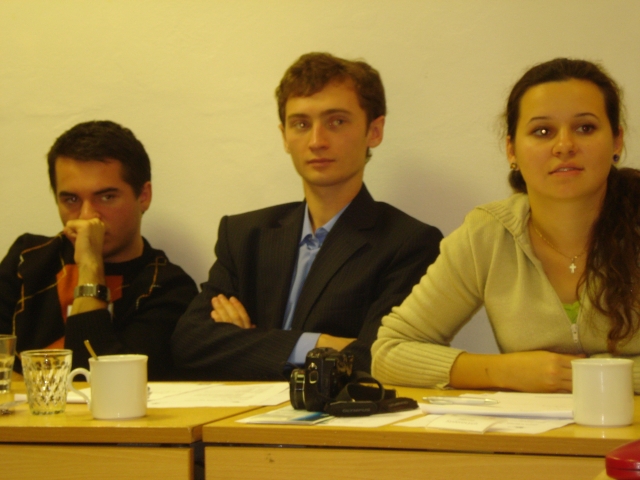During the 9th OpenForum “The Western Balkans – Europe’s (un)wanted challenge” a panel discussion took place with Goran Buldioski, program director of the Open Society Institute Think Tank Fund and Adnan Huskic, project coordinator at the Friedrich Naumann foundation in Bosnia-Hercegovina. It was moderated by Borbala Kriza (Hungarian Europe Society).When analysing the situation in the Balkans, Buldioski stated: “The situation is not so much different from other parts of Europe. Nationalism is instrumentalised almost everywhere. The important difference is: Here people have guns.” Huskic added that the numbers of “excursions into wild nationalism” was decreasing and that they were less intensive. Nowadays he identified nationalist argumentations as the dominant problem. In his point of view the pro-European political parties in the region now used the “nationalist card” in order to stabilise their power after winning over the old nationalist forces by narrow margins only. “The major problem are the so-called democrats who are no democrats in fact.”

Trying to analyse why such political strategies seemed unavoidable, the panellists together with the participants to the OpenForum discussed several factors. The mere existence of prejudice is not the crucial point, as prejudice is nothing unusual for human beings. It is the way people deal with diversity that makes the difference. While some pointed out that people in the Balkans simply would not know each other sufficiently enough, others, such as Noa Treister, strongly disagreed: “Balkan people know each other very well! But knowing each other does not lead automatically to a better understanding. National feelings which are potentially enriching turn into dividing factors because they have been abused for so long.” The participants voiced strong concerns about the potential future development of Balkan societies in which the younger generations lack positive experiences in dealing with diversity and do not practice constructive approaches to conflict resolution. In the words of Goran Buldioski: “People born after 1980 are not really progressive. The generation over 50 usually is.”
From the point of view of Adnan Huskic nothing will change in his home country before the European Union has developed further; it needs to strengthen its institutions in order to follow a more proactive policy. Without clear and concise decisions from outside which all governments in the region have to follow, Adnan claimed, nothing would really change for the better. In this respect the development of a coherent decision was not so difficult: Once Croatia joined the Union and Serbia was on a clear and stable path of accession, Bosnia-Hercegovina would follow automatically.
If a country can only do well under conditions of benevolent outside influence, then the country is lost
Gert Röhrborn
Participants to the OpenForum highlighted that this perspective alone could not lead to sustainable solutions. In the words of Gert Röhrborn: “If a country can only do well under conditions of benevolent outside influence, then the country is lost.” Others highlighted the importance of strategies which encourage political ownership on the local and national level. What Balkan societies can learn from their European neighbours is how to reap the benefits of intercultural and transnational cooperation. It is as simple to understand as it is most difficult to develop and sustain: the Balkans need progress towards a culture of shared responsibility. After two hours of vibrant debate participants and speakers came to the conclusion that the general problem was the same on all levels, be it personal affairs or state politics: If people only stress the responsibility of others and wait for them to do their part before one’s own share is dealt with, substantial change is not possible.
